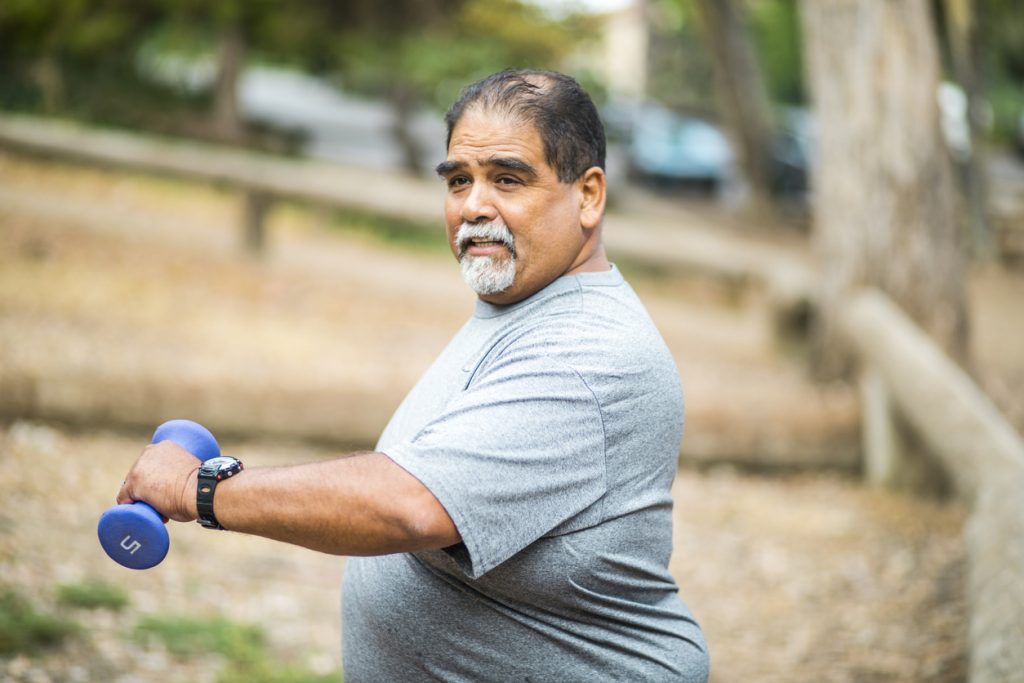Are you living with diabetes and feeling like it’s a life sentence? Are you unsure how to manage your blood sugar and live a happy, healthy life? You’re not alone! Millions of people are living with diabetes every day, and there is no need to feel trapped.
Living with diabetes can be a challenge, but it is possible to live a full and healthy life with the condition. Diabetes doesn’t have to control your life – you can take control of your health and make changes that will benefit you immensely. In this post, we will outline some steps that you can take to manage your diabetes and improve your quality of life. We hope that with these tips, you can start living the happy, healthy life you deserve!
What is diabetes and what are the symptoms?
Diabetes is a chronic condition that affects the way your body processes blood sugar (glucose). Glucose is a type of sugar that is found in your blood. It is the main source of energy for your cells, and it is important for the proper function of your organs. When you have diabetes, your body either does not make enough insulin, or it cannot use the insulin it does make effectively. This causes your blood sugar levels to become too high.
There are three main types of diabetes:
Type 1 Diabetes: This type of diabetes is usually diagnosed in children and young adults. It occurs when the body does not produce enough insulin.
Type 2 Diabetes: This type of diabetes is the most common. It usually develops in adulthood, but it is now being diagnosed more often in children and teens. It occurs when the body does not make enough insulin or when the cells do not use insulin effectively.
Gestational Diabetes: This type of diabetes only occurs during pregnancy. It happens when the body cannot make enough insulin to meet the needs of the developing baby.
Symptoms of diabetes can include:
• Increased thirst
• Frequent urination
• Fatigue
• Blurred vision
• Slow-healing wounds
• Frequent infections
If you have any of these symptoms, it is important to see your doctor so that you can be diagnosed and treated.

How to live a healthy lifestyle with diabetes?
There are a few things you can do to live a healthy lifestyle with diabetes.
Manage your blood sugar levels: One of the most important things you can do is manage your blood sugar levels. This means checking your blood sugar levels regularly and taking steps to keep them under control.
Eat a balanced diet: Eating a balanced diet is important for everyone, but it is especially important if you have diabetes. A balanced diet includes fruits, vegetables, whole grains, low-fat dairy, and lean protein.
Exercise regularly: Exercise is a great way to lower your blood sugar levels and improve your overall health. It is important to talk to your doctor before starting an exercise program.
Monitor your condition: Be sure to monitor your condition and see your doctor regularly. This will help you catch any problems early and prevent them from becoming worse.
By following these tips, you can learn to live well with diabetes.
What to eat and what not to eat with diabetes?
If you have diabetes, it is important to eat a balanced diet. This means eating a variety of foods from all food groups in the right amounts. It is also important to avoid processed foods, sugary drinks, and excessive amounts of saturated and unhealthy fats.
A few tips for eating a diabetes-friendly diet include:
Choose high-fiber foods: Foods that are high in fiber can help regulate blood sugar levels. Good sources of fiber include fruits, vegetables, whole grains, and legumes.
Avoid sugary drinks: Sugary drinks can cause your blood sugar levels to spike. Stick to water or unsweetened beverages instead.
Limit saturated and unhealthy fats: Too much saturated and unhealthy fat can increase your risk of heart disease. Choose lean protein sources and healthy fats, such as olive oil or avocados.
Watch your portion sizes: It is important to control your portion sizes, especially if you are eating high-calorie foods. Use a food scale or measuring cups to make sure you are not overeating.
Avoid processed foods: Processed foods are often high in sugar, salt, and unhealthy fats. Choose whole, unprocessed foods instead.
Following these tips can help you make healthy choices and avoid blood sugar spikes.

How exercise can help control diabetes?
Exercise is a great way to lower blood sugar levels and improve your overall health. It is important to talk to your doctor before starting an exercise program. If you have diabetes, there are a few things you should keep in mind when exercising:
Wear comfortable shoes: Wearing the right shoes can help prevent injuries. Look for shoes that have good support and cushioning.
Warm-up: Be sure to warm up before you start exercising. This will help your muscles get ready for the workout.
Cooldown: After you are done exercising, it is important to cool down. This will help your body recover from the workout.
Drink plenty of water: It is important to stay hydrated when you are exercising. Drink plenty of water before, during, and after your workout.
If you have diabetes, exercise can help you control your blood sugar levels. By following these tips, you can make sure that you stay safe and healthy while you get in shape.
Managing Blood Sugar Levels through Medication or Diet
If you have diabetes, it is important to manage your blood sugar levels. This can be done through medication or diet.
Diabetes Medication: There are many different types of diabetes medication. Some people take one type of medication, while others take a combination of medications. These includes:
• Insulin
• Metformin
• Sulfonylureas
Diabetes Diet: Eating a healthy diet is important for managing blood sugar levels. A few tips for eating a diabetes-friendly diet include:
• Choose high-fiber foods
• Avoid sugary drinks
• Limit saturated and unhealthy fats
• Watch your portion sizes
• Avoid processed foods
By following these tips, you can help manage your blood sugar levels.

Dealing with emotional issues that come along with having diabetes
Having diabetes can be a difficult and emotional experience. It is important to find ways to cope with the stress that comes along with the condition. Here are a few tips:
Find support: There are many support groups available for people with diabetes. This can be a great way to meet other people who are dealing with the same issues as you.
Talk to your doctor: Your doctor can help you manage your diabetes. They can also provide you with information and resources.
Find an activity you enjoy: Doing an activity that you enjoy can help reduce stress. This can be anything from playing a sport to gardening.
Take care of yourself: Be sure to take care of yourself both physically and emotionally. This includes getting regular exercise, eating a healthy diet, and getting enough rest.
By following these tips, you can find ways to cope with the emotional stress of having diabetes.
When to see a doctor?
If you have diabetes, it is important to see your doctor regularly. This will help you catch any problems early and prevent them from becoming worse. Be sure to schedule an appointment with your doctor at least once a year.
Bonus:
Tips For Traveling With Diabetes
If you have diabetes, there are a few things you need to keep in mind when traveling. Here are a few tips:
Pack your supplies: Be sure to pack all of the supplies you need, such as insulin, test strips, and a glucometer.
Pack snacks and meals: It is important to have food with you in case you get hungry. Pack snacks and meals that are high in fiber and protein to help regulate your blood sugar levels.
Carry a medical ID: Be sure to carry a medical ID with you at all times. This way, if you have an emergency, people will know that you have diabetes.
Wear comfortable shoes: Wearing comfortable shoes will help prevent foot injuries.
By following these tips, you can make sure that you are prepared for anything when you travel with diabetes.
Living with diabetes can be a daunting task, but it is not impossible. There are many ways to live a healthy lifestyle and eat the right foods. We hope that this article has helped you understand what to do and what to avoid. Thank you for reading and we wish you all the best in managing your diabetes.



